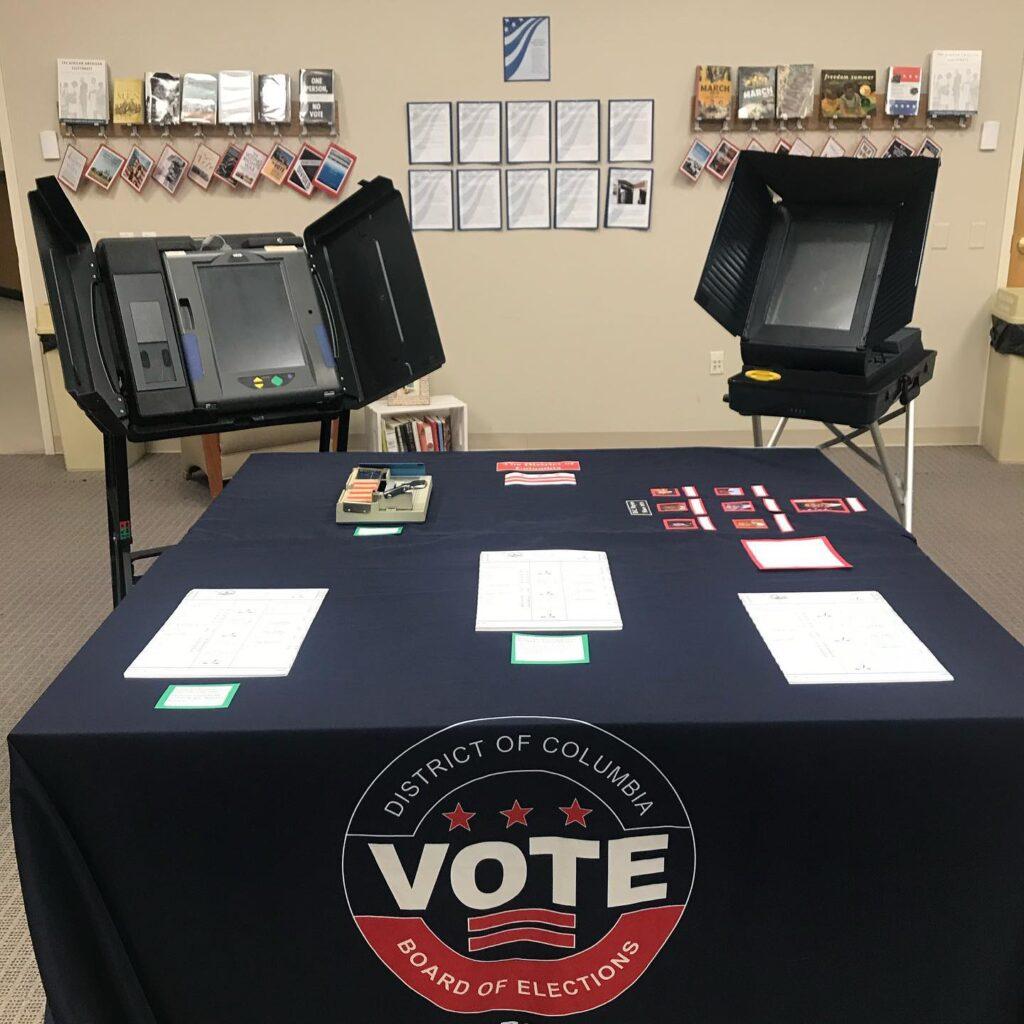Washington, D.C.’s first publicly funded elections in 2020 saw more candidates and increased campaign donations, according to a report recently published by the Georgetown University McCourt School of Public Policy.
The report, titled “Expanding Donor Participation in the District: An Analysis of the Fair Elections Program in Washington, DC,” found that the public funding model under the Fair Elections Program led to a wider field of candidates as well as more candidate funding directly from D.C. residents.
The program, which was passed by the D.C. Council in 2018, seeks to change municipal government campaign funding by creating a public-funding program where the D.C. government can help finance municipal candidates.

Under the initiative, the Fair Elections Program provides candidates with a base payment of $40,000 as seed money for their campaigns. The D.C. government then matches donations from residents to participating candidates at a five-to-one ratio, meaning that for every dollar donated to a candidate the government will give five additional dollars, according to the report.
The Fair Elections Program offers many benefits to D.C. residents by encouraging increased political involvement, according to Brian McCabe (SFS ’02), an associate professor in the department of sociology and the faculty and research director in the Center for Social Justice who co-authored the report.
“Policymakers wanted to increase the participation of small-dollar donors, make sure that people have more of a voice in local democracy and amplify the voices of local residents,” McCabe said in a phone interview with The Hoya.
The Fair Elections initiative was also successful in increasing the number of first-time and small-dollar donors, according to Kenan Dogan (SFS ’23), a junior majoring in business and global affairs who co-authored the report.
The report found that the number of D.C. residents who contributed to a D.C. Council campaign more than doubled in 2020 compared to the 2018 elections. In the 2020 elections, the report found that 13,373 D.C. residents contributed to a D.C. Council campaign, compared to only 6,455 during the 2018 election cycle.
However, despite these successes, the D.C. Council should still make further improvements to D.C. campaign financing, according to the report.
The report urges the D.C. Council to evaluate the candidate qualifying threshold, a base amount of contributions necessary in order to qualify as a candidate in the Fair Elections Program, as well as implement a voucher system that will give funding to candidates even if some voters are unable to contribute personally.
“The qualifying thresholds for the Fair Elections program are generally higher than those in other cities, including Los Angeles, New York, and San Francisco,” the report reads. “Overly burdensome thresholds may restrict the entrance of a diverse, inclusive slate of candidates.”
Los Angeles, San Francisco and Portland use similar public funding models, matching resident donations with a six-to-one ratio. Seattle, Wash., also using a public funding program, offers vouchers to residents to contribute to their choice candidate.
The report also calls for the D.C. government to implement an alternative voting system, such as ranked-choice voting, which would allow individual voters to better navigate a larger field of candidates by ranking multiple instead of only picking one, according to Dogan.
“Ranked-choice voting is going to become a pretty big topic in D.C. over the next four years,” Dogan said in a phone interview with The Hoya. “Ranked-choice voting will help District residents better represent their preferences in a candidate field that is becoming increasingly saturated as a result of the public campaign finance program.”
In July, D.C. legislators introduced a bill to implement ranked-choice voting in D.C. by 2024, which has support from a majority of councilmembers but still faces some pushback from others. While some councilmembers argue ranked-choice voting will allow more participation in the electoral process, others say it will further marginalize independent candidates.
To address the concerns of some of the D.C. councilmembers, McCabe and Dogan plan to host a Zoom event Oct. 14 with D.C. councilmember Christina Henderson to advocate for ranked-choice voting and election reform in the District.
Implementing election reform in addition to reforming and continuing the Fair Elections Program will ultimately help encourage voter participation in democratic processes, according to McCabe.
“The most important thing is to ensure that the voices of all D.C. residents are heard, especially those who have historically been marginalized from the political process,” McCabe said.




















